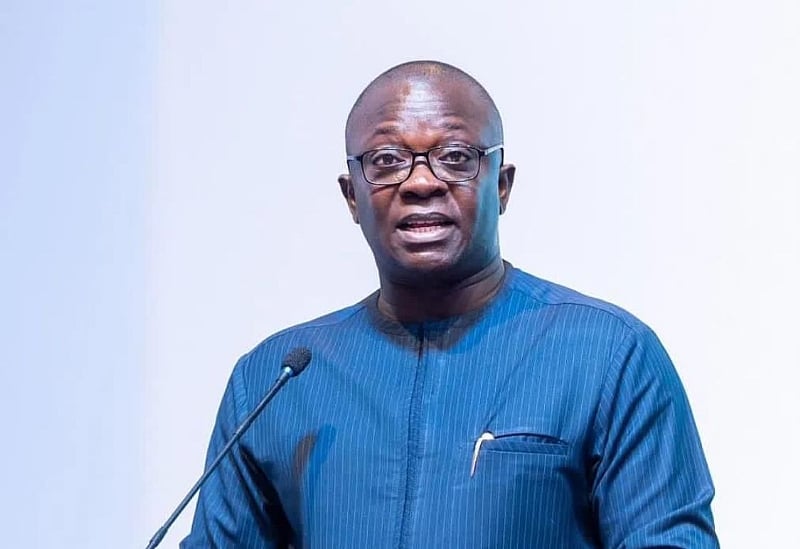The political landscape in Ghana is heating up as the New Patriotic Party (NPP) gears up for its internal primaries to select a flagbearer for the 2028 general elections. Dr. Bryan Acheampong, an NPP flagbearer aspirant and Member of Parliament for Abetifi, has made a startling claim, alleging that he was the sole financier of Vice President Dr. Mahamudu Bawumia’s successful campaign in the 2023 NPP primaries. This revelation has sent ripples through the political arena, raising questions about campaign finance transparency and the influence of money in Ghanaian politics.
Dr. Acheampong’s assertion, captured in a video circulating on social media, details his alleged financial contributions to Dr. Bawumia’s campaign. He claims to have personally funded every aspect of the campaign, including payments to super delegates in the Eastern Region, each of whom allegedly received $1,500. He further boasts of being the largest single contributor to the NPP since its inception, surpassing even his contributions to former President Akufo-Addo’s campaigns. This claim positions him as a significant financial force within the party and raises questions about the potential implications of such substantial individual contributions to political campaigns.
The Abetifi legislator’s statement underscores the often-opaque nature of campaign financing in Ghana. While regulations exist to govern campaign contributions and expenditures, enforcement remains a challenge. The lack of transparency surrounding political donations raises concerns about potential undue influence and the potential for corruption. Dr. Acheampong’s public declaration, whether verifiable or not, highlights the need for stricter regulations and greater transparency in campaign financing to ensure a level playing field and maintain public trust in the electoral process.
The timing of Dr. Acheampong’s revelation is also noteworthy. As he prepares to file his nomination forms for the 2028 NPP flagbearer race, his claims could be interpreted as a strategic move to position himself as a key player within the party and showcase his financial clout. By highlighting his past contributions, he may be attempting to garner support from delegates and establish his credentials as a capable and resourceful leader. However, this strategy could also backfire, potentially alienating some voters who may view such overt displays of wealth as unseemly or indicative of an attempt to buy influence.
The NPP has scheduled its flagbearer election for January 31, 2026, providing ample time for the ramifications of Dr. Acheampong’s claims to unfold. The party’s response to these allegations will be crucial in shaping public perception and demonstrating its commitment to transparency and accountability. If the claims are investigated and substantiated, it could lead to calls for stricter campaign finance reforms and potentially even sanctions against involved parties. On the other hand, a lack of action from the NPP could further fuel public cynicism and erode trust in the party’s internal processes.
Dr. Acheampong’s allegations have brought the issue of campaign financing to the forefront of Ghanaian political discourse, prompting a debate about the role of money in elections and the need for greater transparency. As the NPP navigates this controversy and prepares for its upcoming primaries, the party’s handling of this situation will be a critical test of its commitment to democratic principles and accountability. The outcome could significantly influence the political landscape and shape the future of campaign finance regulations in Ghana.














